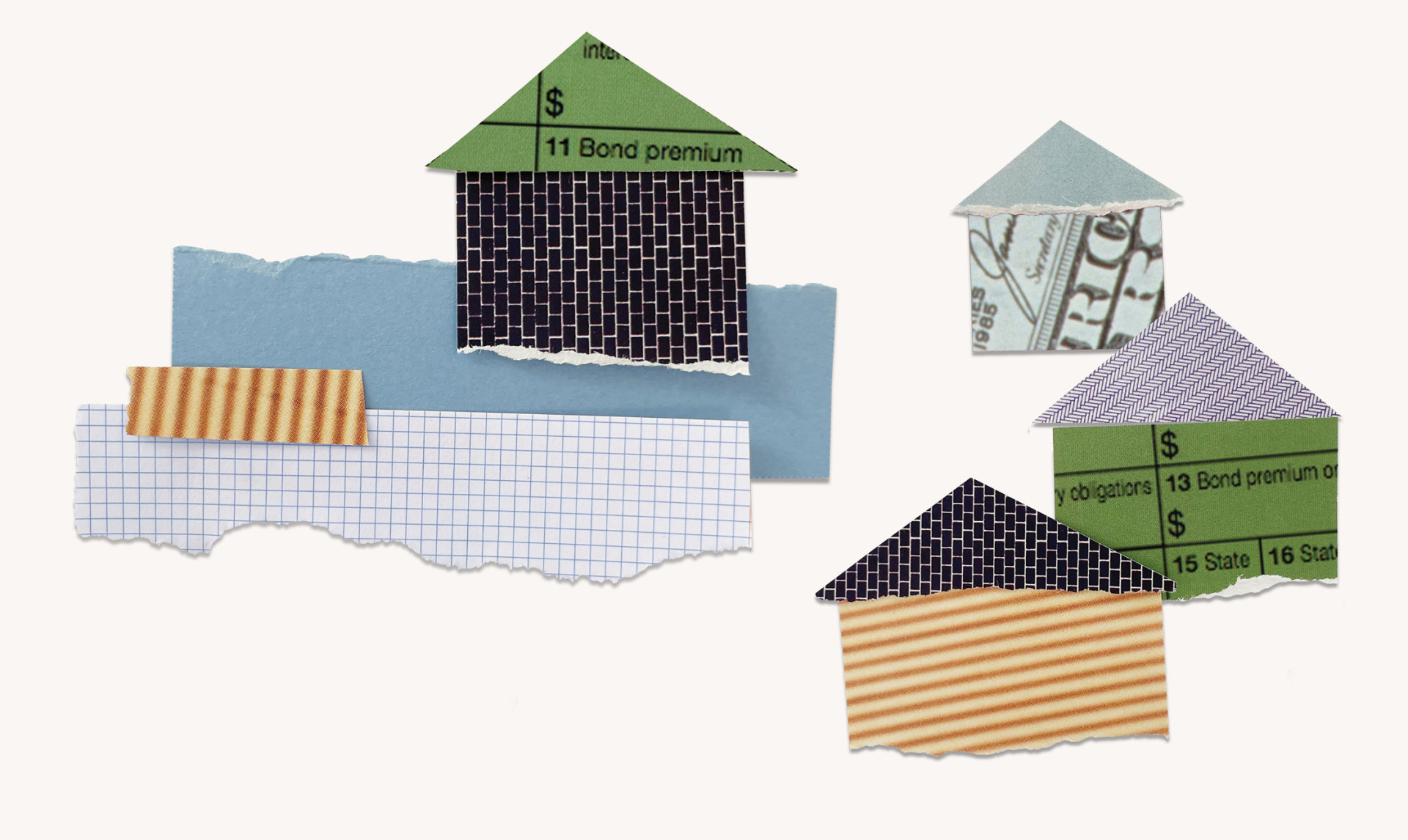Though prices have climbed during a historic pandemic-era run on housing, and though interest rates are up from their historic lows at the end of 2021, smart investments in single family residential (SFR) real estate can generate income in the short term and build generational wealth long term.
And with rents rising nationwide, it’s an auspicious moment to invest, even with mortgage interest rates settling over 5 percent as of mid-May.
Financing the purchase of a rental property is costlier than financing a residence, a half a point to a full point higher rate, and the requirements are more stringent because a lender is taking on more risk.
But the tax advantages, cash flow from rental income, the chance to build equity in a property and the ability to use leverage to get bigger returns are all attractive incentives for investors.
There are many kinds of investment properties, and there are different methods buyers can use to finance a purchase.
1. Conventional mortgages
Conventional mortgages meet the standards dictated by the two major government-sponsored mortgage agencies, Fannie Mae and Freddie Mac. The agencies guarantee these mortgages, taking some risk off the lender.
The amount of the down payment is determined partly by the borrower’s debt-to-income ratio and amount of liquid cash reserves. The number of living units in the property also comes into play. Fannie Mae publishes an eligibility matrix that gives figures for purchasing and refinancing investment properties of various sizes.
Most fixed-rate mortgages require at least a 15 percent down payment on a one-unit investment property. On two- to four-unit investment properties, lenders customarily demand 25 percent. A larger down payment may secure a better interest rate, since the bank has greater security if the buyer has more skin in the game.
Borrowers have to demonstrate at least six months of mortgage payments in reserve, and possibly as high as 12 months. This shows the lender that the borrower can make the payments even if there are periods of vacancy.
Credit scores for a mortgage on a home can be as low as 620, but minimum credit scores for an investment property range from 640 to 680. Those with higher credit scores, 740 or above, qualify for better rates.
Lenders, of course, will require the borrower to present documentation of their finances (including W-2s, tax returns, pay stubs, and bank statements) and authorize a credit check.
Some who are looking to invest might find it hard to come up with a sizable down payment or gather up cash reserves, or they might not have sky-high credit scores. They needn’t surrender all hope. There are alternative ways to break into real estate investing.
2. House hacking
Would-be investors may be able to get into the game by buying a multifamily property (with two to four units) and living in one unit while renting out the others, or even buying a single family home and renting out bedrooms or a finished basement.
This way, investors can buy an investment property more affordably, because, since they’re living in the home, they can get a residential mortgage.
This is called house hacking or owner-occupant financing. With this method, says Thomas Stepp, head of investor offerings at Mynd Investor Services, “You’ve effectively acquired a rental property for the same rates as for a residence.”
In return for these good terms, the owner must occupy the property for 12 months.
Financing is easier to obtain for an owner-occupied property, with lighter requirements for credit and cash reserves, lower interest rates, and lower down payments. Duplex properties can be had with a 15 percent down payment (the low end on investment mortgages).
For a four-family property, borrowers who qualify for an FHA mortgage (originated by lenders approved by the Federal Housing Administration) can pay as little as 3.5 percent down. Those who qualify can get a VA mortgage (guaranteed by the Department of Veterans Affairs) and make no down payment at all.
The penalties for mortgage fraud are harsh, so no one should consider buying this way and not living in the property.
3. Commercial lenders
The basic loan for an investment property is a residential loan, like the one homeowners have on their residence, most of which have a 30-year term. Residential loans are available only for properties with one to four homes.
But there are also commercial loans, which typically are provided by smaller and local banks. Financing a property with five units or more puts the borrower into commercial loan territory. These loans bear higher interest rates, and the loan terms are typically shorter (20 or 25 years versus 30), both of which mean higher monthly payments. Borrowers are also asked to make a bigger down payment, usually 25 percent.
Investors can use commercial loans for smaller properties, too.
If the lender already has the maximum number of 10 residential loans to her name, she’ll have to go over to commercial loans. Real estate investors who don’t have a great deal of income on paper might find that commercial loans are the way to go, because the lender takes into account the income generated by the property, rather than the lender’s income.
For those who want to buy a property in the name of an LLC (limited liability company), commercial loans may be the best bet. LLCs offer better legal protections for personal assets that do not exist when buying in one’s own name, and have some tax benefits.
4. Hard money lenders
Hard money lenders charge higher interest rates and generally lend for shorter terms. For example, a borrower might make interest-only payments for a term of five years, then repay the loan in full at the end of the term.
But, as Stepp points out, the expected term for this note is only about six months.
These loans might be most useful for a buyer who is looking to flip a property, not those who plan to hold on to it and rent it out for years, or other investors who are planning to refinance with a commercial mortgage when the building is leased out and producing stable income.
The bottom line on financing investment properties
Powered by big data and supported by local experts, Mynd takes care of the research, analysis, due diligence and acquisition to help investors acquire the right rental property.
Mynd Mortgage Services’ exclusive relationships with the nation’s premiere lenders get property investors the best rates at the lowest possible cost.



